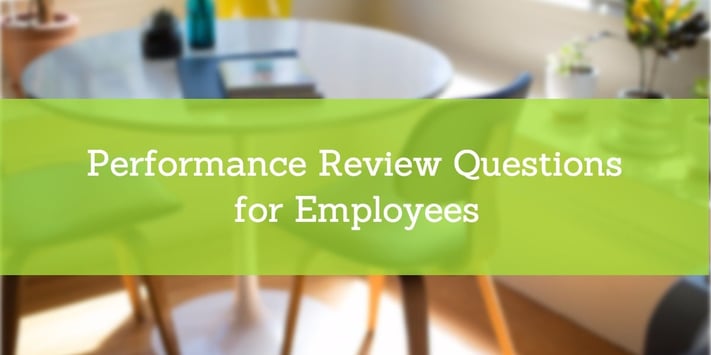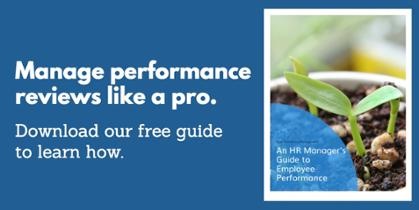Performance reviews can take many forms, from informal weekly check-ins to quarterly or semi-annual discussions. No matter the method you use to conduct employee performance reviews, quality feedback is essential and asking the right questions will help managers and employees make the most of their performance reviews.
The Importance of Feedback in Performance Reviews
Performance reviews help employees see how well they are meeting expectations, so they can make improvements and build on their strengths. When employees have the benefit of open, honest feedback, they not only know where they stand, but they may also feel more satisfied and engaged at work. According to a Clutch survey, 68 percent of employees who receive accurate and consistent feedback feel fulfilled in their jobs.
Salesforce research found that employees who feel their voice is heard in the workplace are 4.6 times more likely to feel empowered to do their best work. Two-way feedback in performance reviews helps employees see the strengths and gaps in their own performance, so they can feel empowered to make improvements. By asking the right employee evaluation questions, you can empower employees and help them achieve optimal performance.
The 12 Best Employee Evaluation Questions
Great performance reviews require more than delivering feedback. Ask these questions to get at the heart of employee performance:
1. What do you like most about your role?
Asking this question helps you understand which aspects of an employee’s role are fun, engaging, and challenging. It also helps you understand how well-suited employees are to their roles.
It’s great when employees have many things they like about their position. When they don’t, you can ask follow-up questions to understand the source of their dislikes and whether they would be a better fit in another position.
2. What would you change about your role?
No role is perfect, and employees at all performance levels may have great ideas for improving their performance and productivity. Asking this question helps you see employee pain points and potential obstacles to their success. From there, you can start a discussion about possible changes.
3. How do you think your role helps the company meet its goals?
It’s necessary to align employee goals to company goals, but this is hard to achieve if employees don’t understand expectations or how their role fits into the bigger picture.
A Gallup survey found that half of employees don’t know what is expected of them at work. By asking this employee evaluation question, you can gauge employee understanding of their role in driving company performance. The answer will help you see where you need to fill in the blanks.
4. What has been your experience with your team?
Given that people spend a big chunk of each day at work, their interaction with team members is highly important. Asking about team dynamics will help uncover positives and potential negatives within a team.
Ideally, you want to hear that employees feel their team works well in collaborating, generating new ideas, and problem-solving. If not, you can obtain more feedback, offer training, and plan some team-building activities.
5. What motivates you to do your best work?
It’s critical to understand the environment in which your employees perform best. Some employees may say they need more regular feedback, while others may be motivated by stretch assignments that pull them out of their comfort zone. Take note of their responses and work on ways to fill employee work experiences with their top motivators.
6. Which goals have you achieved so far, and which have you missed?
Every performance discussion should have a balanced review of accomplishments and where an employee stands on reaching his or her goals. When you talk about specific hits or misses, you ensure agreement on actual achievements and what work lies ahead.
7. In what areas do you feel your performance is strongest?
Ask this evaluation question to understand how employees view their capabilities. Some employees may feel they’re strong in an area not currently being utilized by the company, which may present an opportunity to help them (and the company) grow.
Research shows that poor performers often overestimate their performance. Where you disagree with an employee’s self-assessment, you can offer another perspective.
8. What do you see as your biggest opportunity for improvement?
Performance reviews should be forward-thinking as much as they summarize past performance. Whether employees want to learn a new process or technology, or need to improve their soft skills, you can discuss how to address these areas with training, mentoring, and other experiences.
9. What are your important goals for the next quarter/year?
Just as you need to discuss accomplishments, it’s also important to make sure you’re on the same page with employees about future goals. Prioritizing goals and deliverables gives employees a chance to talk about what they want to accomplish—in their roles and their careers.
10. What do you want your next position to be?
Discussing employee career aspirations helps you determine if current performance will support future plans. When employees need to elevate their performance to get to the next position, you can talk about specific areas for improvement and possible promotional or lateral moves.
11. What do you need from me or the company to support your performance and development?
This question allows employees to express what they need from their manager to be successful. Employees may need a manager to step in and provide support with a difficult relationship with a coworker, or they may need help obtaining new technology to be more efficient.
12. Do you have any concerns or problems we need to discuss?
Sometimes, the things an employee wants to discuss don’t fall neatly into a specific category, and you want to open the door for frank discussion. This question provides an opportunity for employees to express new concerns or revisit a topic in need of more attention.
Boost Performance with Targeted Employee Evaluation Questions
Honest, balanced feedback delivers new insights about motivating and engaging your workforce. When you provide opportunities for a balanced, two-way discussion, employees can take a more active role in their performance and get their manager’s support for their growth and development. To learn more about developing performance reviews that get results, read our performance reviews guide.
Originally published May 3, 2016, updated Sept 28, 2020



